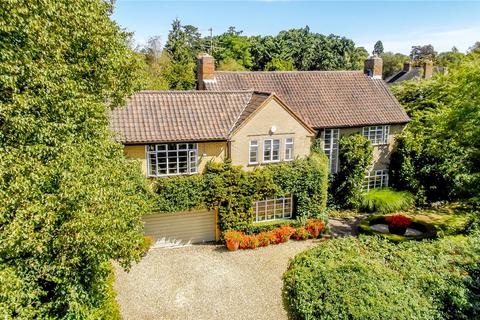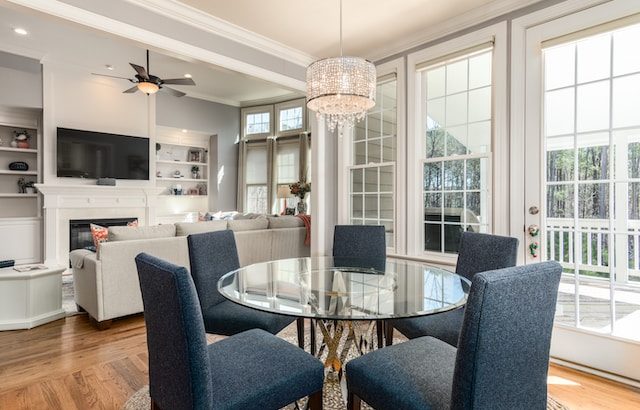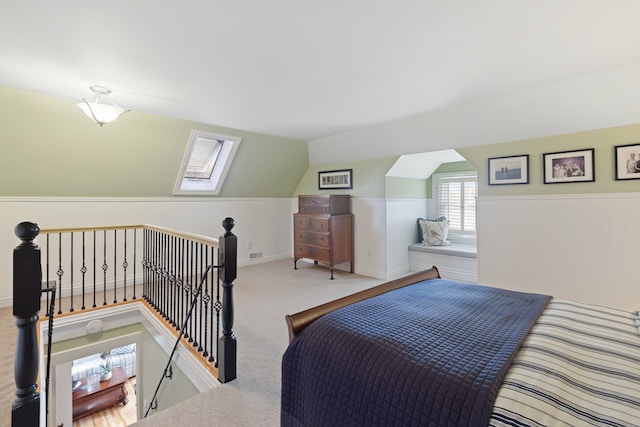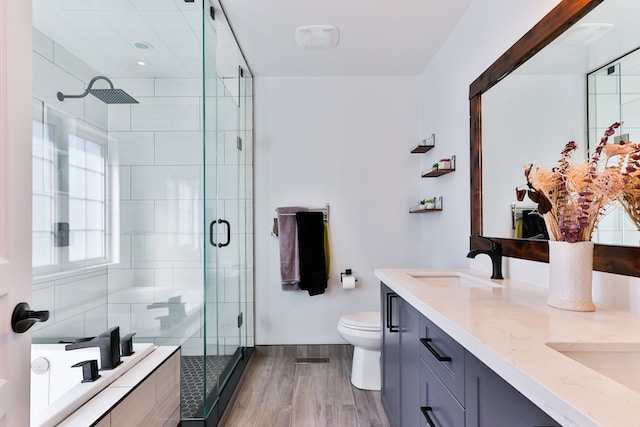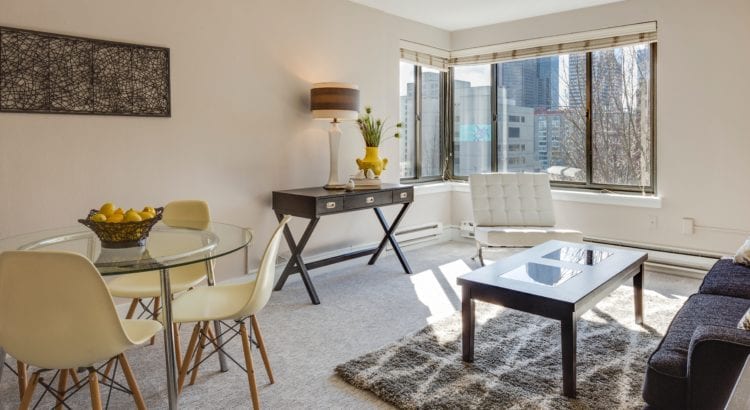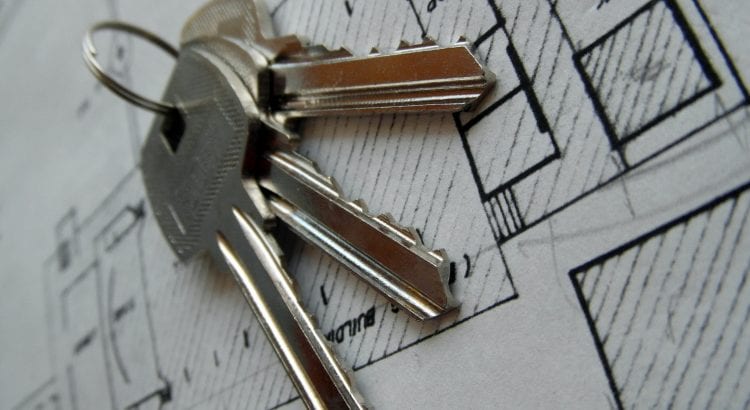At some point, you might at least consider the prospect of extending your home. It can be a great way to add some much-needed additional space, but it can also add value to your property if you do it right. As with anything, extensions come with a list of pros and cons that need to be carefully considered before you make the commitment and decide to extend. In this article, we look at some of the main advantages and disadvantages, helping you to decide whether or not an extension is the right path for you.
Sell or Extend?
The most common question people ask themselves before they even look into extensions is whether or not they should sell or extend. After all, moving house can provide a lot of adventure, but it can also wind up being a very expensive affair. Similarly, while extending your home tends to be a cheaper route for many and can add value to your home, the costs can add up to more than your expected.
The main thing you have to ask yourself is whether or not you need to move. Do you want more space? Will an extension provide you with that space? Is the reason you are looking to move due to no longer enjoying where you live? These are essential questions, and they need firm answers before you can make any decisions regarding extending your home or not.
Why Extend Your Home?
People like to extend their homes for a number of reasons. Here are some of the most common ones:
- Need additional space
- Have family members coming to live with them eg. to help with live-in care
- Want to add value to their property
- Don’t want to move from their current neighbourhood
- Don’t want the stress that comes with moving house
- Like the neighbourhood they are in and don’t want to move
If you are still undecided with regards to whether or not you should extend your home, continue reading this guide. Below, we explore some of the biggest pros and cons when it comes to extensions – helping you to make a more informed choice.

The Pros of Extending Your Home
#1 Can be Cheaper Than Buying a New Home
Purchasing a new home can end up being very expensive. Of course, you have the cost of the house itself, but you also have the additional fees that you need to pay in order to buy your next house. These are things like stamp duty and conveyancer/solicitor fees – all of which can add up to be a few thousand pounds by the time you are done. And, of course, you have to sell your existing home first, which isn’t always easy depending on economic conditions at the time.
An extension will usually cost a fraction of what you would end up spending purchasing a new home. Of course, the price of an extension can vary greatly, as it depends on the size, shape, and general layout of the additional space that you wish to have constructed. Prices can start as low as £1,500, and range far beyond the £50,000 mark.
So, if you are looking for a way to create new space in your home, but you also want to save money, an extension is an excellent option. Plus, it means you don’ have to leave your current neighbourhood – which is especially great if you have become a little attached to it.
#2 Certain Extensions Increase Home Value
It is true that some extension can increase the value of your home. The first of these is a conservatory. This is seen as a very desirable addition to any home, as it provides a place to relax with friends and family during the summer months, as well as the winter. For this reason, orangeries are also a popular choice. These are similar to conservatories, but are made with brick as well as glass.
If you are adding additional rooms to your home, it is important to make sure that you add bathrooms where necessary. For example, if you are adding new bedrooms upstairs, a family bathroom and an ensuite are very desirable. Similarly, having a bathroom upstairs and downstairs will certainly add a little more value to your home.

An office or study can also add some value, especially for those who are self-employed and work from home. Having it listed as an option when you go to sell your home can be very beneficial, and may also increase the amount of interest in your home.
Loft conversions are also a good choice to make if you are looking to increase the amount of space you have, but also add some value to your home. It allows the buyers to use it as a bedroom, study, or other room when they buy it, making it a versatile choice of extension. These are becoming increasingly popular, and so it is important to make sure that you have the conversion done professionally.
#3 Less Stress and Hassle Than Moving Home (Usually)
When you move house, it comes with a great deal of stress and hassle. After all, there is a lot to organise, a good deal to pay for, and the waiting period can be stressful at best. A solicitor and conveyancer will deal with the paperwork for you, yes, but you still have to pay them once this is done.
On top of that, you also need to pay stamp duty, and you must also higher someone to survey your new home to ensure that it is not damaged in any way. All of this together will end up costing thousands of pounds. Plus, you have to factor in the additional costs to repair damage to your home before you sell it – even the small cosmetic items.
Aside from the cost, you also have the stress of the sale. Until the contracts are signed, and the exchange finalised, the whole thing could fall through at any time – especially if you are part of a buying chain. If the chain collapses, your sale falls through, as does your purchase. If this happens, you still have to pay all of your legal fees, which will leave you out of pocket.
The moving process can also be stressful, as you need to move all of your possessions from one home to another, which requires hiring and using a moving van, and sometimes you need London storage. Plus, you need to make sure you have the manpower to lift all of your heavy items into the new house. Aside from hassle, this also adds additional costs.

#4 Allows You to Stay in an Area You Like
One of the top reasons people choose to extend their home is that it allows them to stay in an area that they know and love. When you move house, you never really know what kind of area you are going to end up in, nor do you know what your neighbours will be like. Even if you do a lot of research, you know nothing until you arrive.
If you like the town, city, or village that you live in, then you may not want to move away from it. Many people form close friendships with the local people, and not everyone wants to leave that kind of atmosphere or routine. As a result, extending your home can be the better option. It means that you can expand your living space and play around with the layout, all without the hassle of moving.
The Cons of Extending Your Home
#1 Garage Conversions Can Decrease the Value of Your Home
If you convert your garage, it can add a lot of extra space to your home. This may seem great, but it can actually cause the value of your house to decrease. If you convert the garage, but leave nowhere to park, people will often be dissuaded from putting an offer on your home. After all, many people prefer to leave their car in a locked garage, and some garage conversions mean that you have to park on the road.
You need to consider the balance in your home as well when you go to extend. An unbalanced layout will cause the value of your property to decrease. A lack of bathrooms can be a big minus, as can extending the living room instead of converting loft space. Similarly, a lack of bedrooms and a tiny kitchen are very unattractive to families who are looking to buy a home.
The best thing you can do is talk to your estate agent before you put your home on the market. Ask them what they think, and also which extensions are popular and which will add the most value to your home. Speaking with an expert in the field is your best bet.
#2 Limited Space
One of the biggest pitfalls when it comes to extending your home is the fact that you are, ultimately, limited by the amount of land that you possess. Of course, if you own many acres, this might not be an issue, but for many, the available land is small. This means that while you may be able to extend your home, you could end with little to no garden (which will devalue your home), or you might not be able to extend as much as you originally wanted.
If you extend your house to the point where it appears to be squeezed into its lot, this can leave many buyers feeling put off and disappointed with the appearance of your home. It can also be unsightly for neighbours, and ultimately leads to you running out of space outside of the house.
#3 Can be Limited by Planning Permission
Planning permission is the bane of many extensions. After all, it only takes a few complaints for the council to consider denying you the permission you are looking for. This can be a very stressful period, as the waiting time for planning can last a few months, and in that time your neighbours are free to state whether or not they agree (and accept) your choice of extension.
You may also live in an area (or a home) that has limits on the amount of planning permission that can be granted. This can massively impact your extension plans, and sometimes even thwart them completely. Getting planning permission can be a tricky, time consuming, and stressful process. Before you extend, make sure you think carefully about whether or not it’s worth it.
#4 Extensions Can be Messy and Time Consuming
One of the things you can never predict about an extension is how long it will take to build. You will be given an estimate, but the majority of the time you will find it takes several months more than planned. Delays happen, and sometimes you may need to demolish and reconstruct parts of the extension if the council inspector deems the current building work to be outside of the guidelines and rules.
Before you opt to extend your home, it is first important that you decide if you are comfortable with the process being completed at least six months after the expected date. Putting this extra time on gives you a good estimate and helps you to be prepared – emotionally and financially.
Having an extension built is also messy work a lot of the time. Your house will practically be a building site for the duration of the extension work. You can expect to find dust, debris, and muddy footprints throughout the main area of your home while it is being worked on, and there will likely be a few cold nights when new areas are being constructed. Before building work commences, you need to take this into consideration and ask yourself if it’s really worth it.
Other Things to Consider
Here are some of the other things you may want to consider if you are thinking of having building work done on your home. After all, there is more to think about than the pros and cons listed above.
Finding a Good Builder
If you have made a choice to go forward with your extension, you need to make sure that you employ a good builder, and that they have reliable workers. Of course, this is never a simple task, especially with the number of ‘cowboy’ companies that are out there. A lot of people feel quite tense when they go to choose a builder, but a lot of the time it will work out well.
Recommendations from family and friends are a good place to start, as they can tell you about their own experiences, as well as which companies they think are the best. Often, you will be steered towards online reviews on websites like Facebook. While this can be a good place to get a general idea, reviews on these sites are often left by friends and family to get the rating higher.
The council can also be a good place to look, as they will have a list of companies that they have used for work in the past. If you are struggling to find a company based on recommendations and reviews, this can be one of the best paths to take. Generally, the building companies used by the council are reliable and offer a fair quote, which is always beneficial.
Before you make your choice, make sure you get a quote off each of the builders you have spoken to. That way, you will have a list of prices so that you can choose one that suits your budget. However, it also gives you some space to negotiate a higher price with your chosen builder if they have a higher quote than your other options.
Most will be open to the prospect of negotiation as long as you are both polite and fair when you initiate the process. Asking for too much off is insulting, so make sure you are prepared to haggle and that you treat the builder with respect when negotiating.
Stay or Away?
When extensions are being built, and work is being done on the home, some families choose to move away from their houses while the job is being done storing furniture and belongings elsewhere, and others choose to stay. This is something you will need to consider should you decide to expand your current home.
For those that work nights, and for those that have children, staying away from the home can often mean a less disruptive schedule. Night workers are less likely to end up with disruption during the day when they are trying to sleep, and children are more likely to remain in their usual routines.
Staying away usually means that people take one of the following options:
- Stay at a hotel or B&B
- Stay with relatives
- Stay with friends
- Rent a flat or house
Some of the choices are more expensive than others, so make sure you consider the cost before you make a decision if you are staying away. Remaining in the home is often the cheapest and easiest option, and it also leaves you with the freedom that comes with having your own house. Just make sure that you won’t find yourself too disrupted by all the building work.
Who is the Extension for?
This is a question that you might not have thought too much about. When you go to extend your home, ask yourself who this extension is for. Are you building it for your parents or adult children? Is it to give you extra space to work? Do your young children need a larger place to sleep and play?
An increasing number of families are moving in together, with parents and adult children having separate houses on the same land. It is cheaper, easier, and it also means that everyone is close together just in case they need anything. However, it also offers everyone their own space that is completely private.
If this is your plan, you need to carefully consider the extension, but also the amount of land you have to play with. Is it worth moving house and finding somewhere that comes with more land so that you can build an additional house? Some people will convert the space over the garage for a parent that is moving back, but others will require additional space for a larger number of returning family members.
The reason for your extension should be something you put a lot of thought into. It’s good to ensure that you are extending for the right reasons, but also to make sure that it’s worth it and that it’s easier than moving house. Once you have confirmed the reason for your extension, as well as who it is for, you can then take a look at how to go about it.
To Conclude
Hopefully, this guide has given you some insight into the advantages and disadvantages of extending your home. It’s never an easy choice to make, nor is it a decision that should ever be taken lightly. As with anything, it also comes with a number of risks that could end up causing the project to cost a lot more money, but also take up a much larger amount of time than previously anticipated. However, once the job is done, you should be left with a wonderful extension that allows you to open up your home and use some much-needed extra space. Despite the risks, it can be a wonderful solution for those who need space but don’t want to leave their home (or their area).
